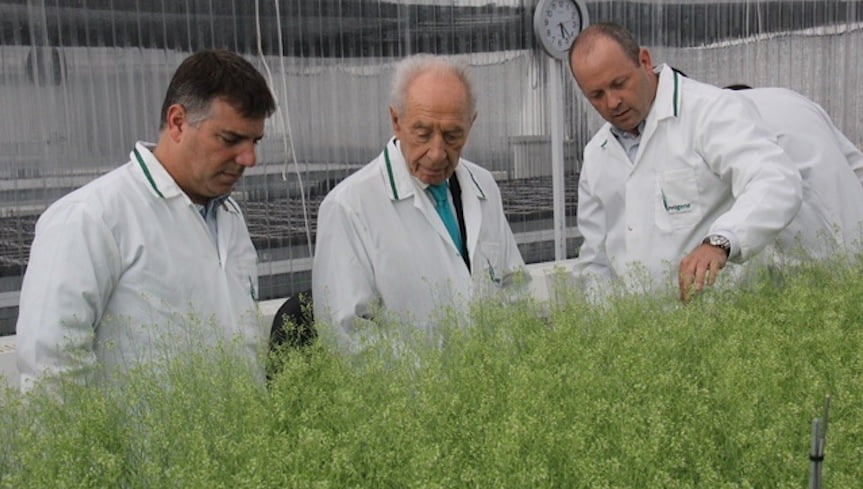This article was first published on The Times of Israel and was re-posted with permission.
In the latest innovation in the growing industry of genetic modification, Israeli research firm Evogene last week announced a breakthrough in insecticide development.
Its big data gene analysis platform has enabled scientists to successfully recruit genetic material from microorganisms that show promise as insecticides, the company said. With more research, the company hopes to further modify the genes and enhance their insecticidal properties, and insert or breed them into crops as a built-in insecticide to battle pests.
SEE ALSO: Revolutionary Rooftop Farm Grows Organic Veggies Sans Soil In The Heart Of Tel Aviv
It sounds futuristic, but Evogene didn’t invent this process. In fact, the company is simply expanding technology that has been around for over two decades in an effort to develop a replacement for a popular gene-based insecticide that is showing its age.
Some organisms have natural defenses against predators and pests, and with the advent of big data computing and advanced genetic analysis technology, it’s now possible to isolate the genes that are responsible for providing these defenses. The analysis provides insight the function of genes, with an eye toward exploiting their functionality. With enhancements, genes could be developed for insertion into species to provide a plethora of benefits, such as resistance to pests and a greater ability to thrive in dry climates.
Sign up for our free weekly newsletter
SubscribeSEE ALSO: Proof Of Earliest Agriculture Found In Israel
Based on its latest research, Rehovot-based Evogene announced that it had isolated specific genes in microbes that appear to have “insecticidal properties” capable of fighting off several major-league pests. Using its proprietary microbial-based database and dedicated analysis platform, BiomeMine, the company said it had isolated several microbial-based genes that will be effective against Coleoptera (members of the beetle family) and Lepidoptera (moths and butterflies).
Those bug families include insects that are among farmers’ biggest nightmares – corn rootworm and corn earworm, responsible for huge losses each year.
To continue reading this article on the TOI site, click here.
Related posts

Resilient And Nutritious New Plant-Based Milk Aims To Make A Splash

Chocolate From Cultivated Cocoa Comes Without Environmental Toll

Plastic Fantastic: Startup Takes PVC Back To Its Crude Oil Roots






Facebook comments